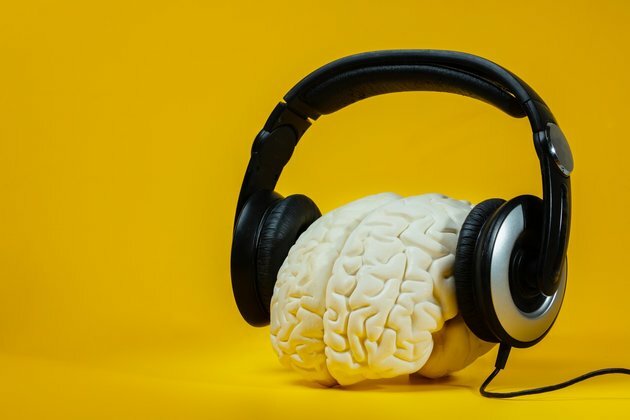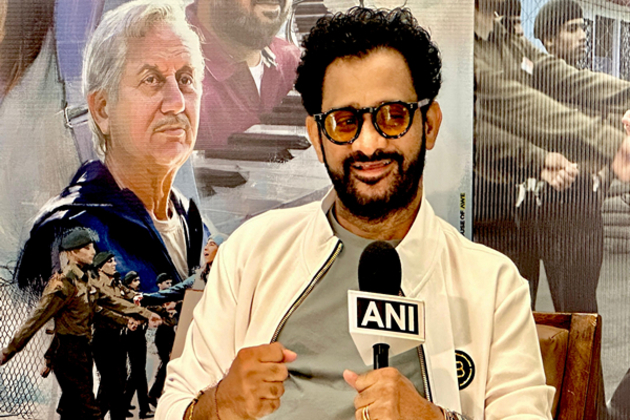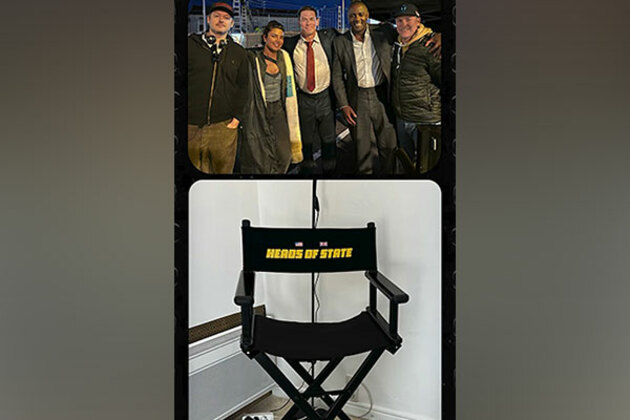How movies use music to manipulate your memory
The Conversation
21 Nov 2023, 00:08 GMT+10

Around one in five American adults manage to squeeze in watching a movie on a daily basis. It's a great way to escape the daily grind and unwind with loved ones. But, what can you actually remember about last night's film?
You may be able to remember the title, the rough story outline or the Hollywood star who acted in it. But dig a little deeper. How easily does a specific movie sequence come to mind right now? And more importantly, can you hear or recognise the film's musical score?
Filmmakers have long used music to try to make movies, scenes and characters more memorable. Now psychological research has started to uncover the science behind this process.
Music is so closely ingrained in our cinematic experience that we sometimes end up having false memory for it. One study showed that, after watching a brief movie sequence, up to two-thirds of participants believed that the sequence was accompanied by a musical score - even when it wasn't. Scientists call this "expectancy bias".
A successful musical score often involves earworms - songs that stick in our minds. These tend to be songs that have achieved great success and recent runs in the music charts.
When paired with a movie sequence, fresh takes on old hits help keep audiences entertained. Their sing-along, foot-tapping familiarity reflect the huge exposure they've had for decades. They are therefore readily exploited as an effective marketing hook, especially in movie trailers - where there's little time to make an impact on viewers.
Music also helps us interpret characters. Research shows that listening to a 15 seconds segment of fearful music can act as an important cue to look for signs of fear in the facial expressions of the characters on the screen.
But how are deeper emotional connections made? Filmmakers rely on a range of techniques to try to create enduring and distinctive movie scenes. They often home in on the emotional properties of the pairing between sound and images. But is there any firm evidence that music can actually influence visual memories in this way?
Research into music and memory has unveiled that the two are strongly linked. People are more accurate in recalling the actions, characters and final outcome of a positive or negative film scene if it is accompanied by music with a similar positive or negative emotional quality, respectively.
This match between the emotional content of the film and music is called a mood-congruency effect. It enhances our memory of what was previously viewed by "chunking" memory fragments into a quick, easy and more manageable whole in our minds.
Irony and incongruency
Irony is linked to the ability to say one thing while meaning the opposite. Often considered a linguist device, it is also apparent in sound and image pairings. In the ironic contrast technique, scenes that depict negative events or emotions such as sadness, anger and fear are paired with emotionally positive music.
The outcome of this pairing is that the incongruous background disrupts the emotional tone of the film scene, often creating a sarcastic or melancholic effect that is memorable.
The movies Bowling for Columbine and A Clockwork Orange provide examples of violent episodes that are accompanied by incongruent music.
Mood-incongruency effects represent yet another twist in viewers' expectations. We rely on our own personal experiences and associations with musical conventions to help shape our understanding of what happens next.
Watching a brief clip of a wedding party set against a backdrop of slow-paced, sad music, for example, alerts us to a mismatch between the visual content and our previous (direct or indirect) experiences of wedding parties. The movie script in our mind might be asking, "where is the upbeat music for the party guests to dance to?" Searching for the answer makes us notice the mood-incongruency effect conveyed by the music even more.
This enables us to develop a more distinctive image in our memory. In fact, we've tested this in the lab. We asked 60 participants to view a romantic comedy trailer to either sad, happy or no music. When we tested their memory of the trailer later on, we found that people who had heard the sad music had a better visual memory of the film scene than those who watched it with happy music or without any music at all.
Mood-incongruency effects are not limited to audio-visual pairings. They can be found with other senses too, such as odours, and serve to alert us quickly and efficiently to expectancy violations in our immediate environment. This is almost like a "what's coming next" setting in our brain that makes us pay more attention - and therefore remember the event better.
These effects appear to be relatively short-lived and whether they can exert any longer-term impact beyond the few minutes of a movie trailer or a film scene is yet to be fully determined. Ultimately, they are informed by our previous experiences and stored in our long-term memory, ready and on standby for the next plot twist.
So what happens if our previous experiences of these music-induced emotions are fragmented or missing altogether, as might be the case in individuals who are deaf or hearing-impaired?
Can captioning a piece of music as "ominous" elicit similar ironic contrast effects on memory as actual, ominous-sounding music, for example? And if the unexpected becomes the expected, is the irony lost? Answers to these questions might just open up a new portal into our movie-viewing universe.
Author: Libby Damjanovic - Research Fellow of Psychology, Lund University 
 Share
Share
 Tweet
Tweet
 Share
Share
 Flip
Flip
 Email
Email
Watch latest videos
Subscribe and Follow
Get a daily dose of Entertainment Sun news through our daily email, its complimentary and keeps you fully up to date with world and business news as well.
News RELEASES
Publish news of your business, community or sports group, personnel appointments, major event and more by submitting a news release to Entertainment Sun.
More InformationInternational
SectionNative leaders, activists oppose detention site on Florida wetlands
EVERGLADES, Florida: Over the weekend, a diverse coalition of environmental activists, Native American leaders, and residents gathered...
Beijing crowds cheer AI-powered robots over real soccer players
BEIJING, China: China's national soccer team may struggle to stir excitement, but its humanoid robots are drawing cheers — and not...
COVID-19 source still unknown, says WHO panel
]LONDON, U.K.: A World Health Organization (WHO) expert group investigating the origins of the COVID-19 pandemic released its final...
Fox faces $787 million lawsuit from Newsom over Trump phone call
DOVER, Delaware: California Governor Gavin Newsom has taken legal aim at Fox News, accusing the network of deliberately distorting...
DeepSeek faces app store ban in Germany over data transfer fears
FRANKFURT, Germany: Germany has become the latest country to challenge Chinese AI firm DeepSeek over its data practices, as pressure...
Canadian option offered to Harvard graduates facing US visa issues
TORONTO, Canada: Harvard University and the University of Toronto have created a backup plan to ensure Harvard graduate students continue...
Movies
SectionKate Winslet's visit sparks profit jump at Ballymaloe Cookery School
DUBLIN, Ireland: Post-tax profits at Ballymaloe Cookery School rose by 53 percent in 2024 to 135,952 euros, helped by the buzz around...
China: Building a 'Patriots Only' Hong Kong
(New York) - China's government has erased Hong Kong's freedoms since imposing the draconian National Security Law on June 30, 2020,...
Karnataka forms expert panel to probe heart attack deaths in Hassan
Bengaluru (Karnataka) [India], July 2 (ANI): In response to four heart attack deaths within 24 hours in Karnataka's Hassan district,...
Delhi LG Vinai Kumar Saxena attends 'Umrao Jaan' screening, says it's a "difficult film to make in today's time"
New Delhi [India], July 2 (ANI): Lieutenant Governor of Delhi, Vinai Kumar Saxena, hailed the Rekha starrer 'Umrao Jaan' after watching...
"Body of work he has done...": Oscar-winning sound editor Resul Pookutty on working with Anupam Kher in 'Tanvi The Great'
Mumbai (Maharashtra) [India], July 1 (ANI): Ahead of the release of Anupam Kher's directorial 'Tanvi The Great', Oscar-winning sound...
Priyanka Chopra shares fun BTS moments from 'Heads of State' sets, poses with John Cena, Idris Elba
Washington DC [US], July 1 (ANI): Actress Priyanka Chopra offered her fans a behind-the-scenes glimpse from her upcoming Hollywood...













